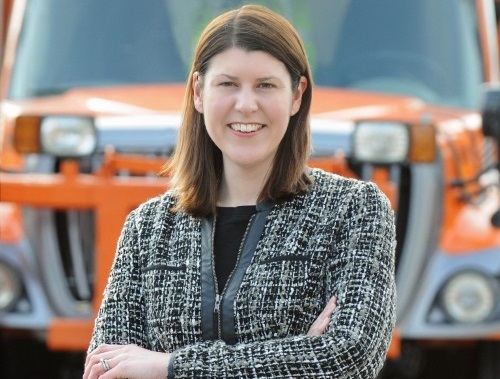Any delay – or even worse, a series of short-term extensions – in surface transportation reauthorization legislation “would wreak havoc across the country and would impact not just state DOTs, but our partners such as local governments and the construction industry,” emphasized Victoria Sheehan in a Senate Committee on Environment and Public Works hearing February 24.

Sheehan – commissioner of the New Hampshire Department of Transportation and the 2020-2021 president of the American Association of State Highway and Transportation Officials – also noted that the COVID-19 pandemic added an extra measure of urgency to the reauthorization efforts.
“The pandemic has been devastating to so many of our citizens, our businesses and our communities,” she said. “Given these impacts, we now have an opportunity to restore the economic vitality that makes America a nation we are proud to call home. To do this, the situation demands bold action to invest in our transportation infrastructure in order to rebuild our economy, while also making long-lasting improvements to the transportation systems that we rely upon every day.”
In her written testimony, Sheehan highlighted several key principles state departments of transportation support as the EPW committee begins to work on a new surface transportation reauthorization bill – legislation Sen. Tom Carper, D-Del., the committee’s new chair, expects to complete by Memorial Day. Those principles are:
- Timely reauthorization of a long-term bill to prevent unnecessary program disruptions and delays in safety and mobility benefits to states and communities
- Enacting a long-term, sustainable revenue solution to the Highway Trust Fund to provide multiyear federal funding stability to support state transportation investment needs.
- Increasing and prioritizing formula-based funding to the states, which optimally balances national goals with state and local decision-making processes.
- Increasing flexibility, reduce program burdens, and improve project delivery to speed up delivery of transportation investments while protecting the environment and lowering project cost.
- Supporting and ensuring state DOTs ability to harness innovation and technology to achieve a safer and more resilient, efficient, and secure surface transportation system.
Sen. Carper touched on some of those issues in his opening statement at the hearing, adding that he believes a vehicle miles tax or VMT is needed to provide transportation funding in the future.

“A growing number of people believe that a national VMT approach will eventually fund much of our transportation infrastructure in the not-too-distant future,” he said. “The reauthorization bill this committee adopted unanimously in the last Congress called for a national VMT pilot for all 50 states. It was a good idea then. I believe it’s an even better idea now.”
Meanwhile, Sen. Shelley Moore Capito, R-W.Va., the committee’s ranking member, stressed in her comments transportation infrastructure “is the platform that can drive economic growth now and in the future and create jobs, while also improving the quality of life for everyone.”

To achieve those affects, she said surface transportation reauthorization must give flexibility to states and communities to address their “unique transportation needs” as well. Sen. Capito also said the federal interest must remain “focused” on providing a connected network of roads and bridges to “ensure that all communities and the economy can thrive.”
Michigan Governor Gretchen Whitmer (D) and Maryland Governor Larry Hogan (R) also echoed those sentiments in their comments at the EPW hearing.
“Without significant investment in infrastructure, my state and our nation will struggle to remain competitive,” Gov. Whitmer said in her testimony. “Doing nothing shouldn’t be an option.”
“States should be granted maximum flexibility to relieve congestion and invest in adaptable and innovation solutions with more reliability and certainty of formula funding,” noted Gov. Hogan in his testimony. “[Continuing] to enhance efficiency and eliminating red tape, cutting [transportation] project timeframes down, will also be very important.”



